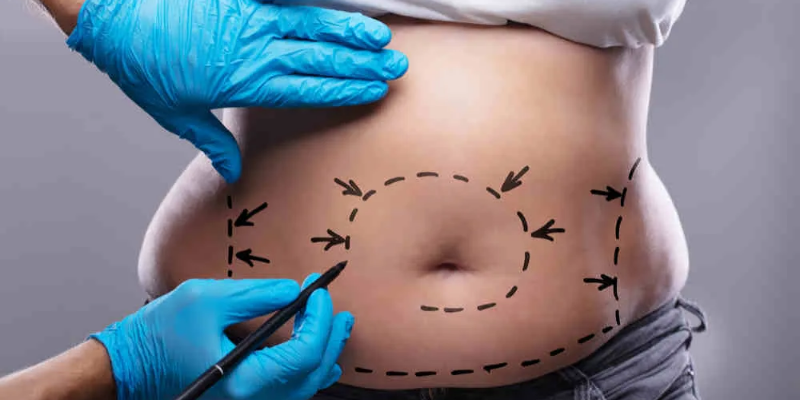After Weightloss Surgery When Do U Take Ur Vitmins?
As the fat culture spread, more and more people had bariatric surgery. After weightloss surgery when do u take ur vitamins? Anyone who looks into the topic and decides to have or get bariatric surgery is likely to have questions like these. It’s hard to depend so much on the results of surgery when it can be done in different ways and by different doctors. This is especially important if you are trying to lose weight. Due to mistakes and inexperienced hands, bariatric surgery may not turn out well. So, people’s opinions may not always show what people who care about the environment think. In this essay, we’ll talk about how surgery and the fat culture are both complicated. First, let’s talk about what obesity is. How many steps are there in the process? How dangerous are these risks? Let’s look more closely.
Obesity is a hard-to-treat disease. Also, the typical extra fat on the body. Obesity is more than just a matter of looks. Because of this medical condition, you are more likely to get other diseases and health problems, such as heart disease, type 2 diabetes, high blood pressure, and some types of cancer. Some people have trouble staying slim for a number of reasons. Obesity is usually caused by a combination of genes, the environment, and choices about what to eat and how much to move. The good news is that even a small amount of weight loss can help or stop health problems caused by obesity. Changes in what you eat, how much you move, and how you act can all help you lose weight. There are also prescription drugs and weight-loss surgeries that can be used to deal with obesity.
After Weightloss Surgery When Do U Take Ur Vitmins And Supplements?
But you are obese if your body mass index (BMI) is 30 or more. To figure out your BMI, multiply your weight in pounds by your height in inches. After that, you should add 703. Put your height in meters squared in place of your weight in kilograms. BMI is a good way to estimate body fat for the vast majority of people. But because BMI doesn’t measure body fat directly, some people, like strong athletes, can have a BMI that puts them in the obese category even though they don’t have too much body fat. So, measuring body fat is always a good way to tell if someone is obese.
In bariatric surgery, like gastric bypass and other weight-loss surgeries, your digestive tract is changed to help you lose weight. People who have tried to lose weight through diet and exercise but haven’t been able to or who are having serious health problems because of their weight can choose to have surgery. With some therapies, you can only eat a certain amount of food. Because of other treatments, the body loses some of its ability to take in nutrients. Some techniques can do both of these things. Any surgery to lose weight, including bariatric surgery, comes with a lot of risks and side effects. To find out how well bariatric surgery works in the long run, you also have to make permanent changes to your diet and get regular exercise.
Who Needs Weight Loss Surgery?
If your body mass index, or BMI, is 30 or more, you are considered obese. Multiply your weight in pounds by your height in inches, then multiply that number by 703. You could also multiply your weight in kilograms by the square of your height in meters. The BMI is a good way for most people to measure their body fat. But because BMI doesn’t measure body fat directly, some people, like strong athletes, can have a BMI that puts them in the obese category even though they don’t have too much body fat. So, measuring body fat is always a good way to tell if someone is obese.
As with any major treatment, bariatric surgery has both short-term and long-term health risks. There is a chance of too much bleeding, infection, a bad reaction to the anesthesia, blood clots, problems with your lungs or breathing, leaks in your digestive system, and death. Also, these risks were linked to having surgery. The risks and effects of weight-loss surgery in the long run depend on the type of surgery. Possible problems include bowel blockage, dumping syndrome, diarrhea, flushing, dizziness, nausea, vomiting, gallstones, hernias, low blood sugar, malnutrition, ulcers, vomiting, acid reflux, and death. After Weightloss Surgery When Do U Take Ur Vitamins?
Should You Take Multivitamins After Weight Loss Surgery?
Is it okay to take gummy multivitamins for people who have had bariatric surgery? After bariatric surgery, what vitamins should I take? In most cases, patients start taking chewable vitamins soon after surgery. Most of them, though, said they felt sick right away. The answer is easy to figure out. For the first few weeks after weight loss surgery, when your stomach is still getting used to its new size, gummy vitamins are a good choice. But before you eat them, you should cut them in half and chew them well. Also, you shouldn’t take gummy multivitamins for a long time because they usually don’t have enough of the right amounts. After everything, you should think about what your doctor says. After Weightloss Surgery When Do U Take Ur Vitamins?
Why Can’t You Take Vitamins After Bariatric Surgery If You Need B12?
After weightloss surgery when do u take ur vitmins? Aside from that, most people prefer chewable or liquid forms for the first 2–6 months before switching to traditional pill forms. In the same way, everyone is different, and some people can get used to taking pills in just a few weeks. Keep in mind that a vitamin B12 supplement that dissolves under your tongue is better.
You want the best, right? Look for a multivitamin that is made for people with bariatric conditions. Even some of the bariatric gummy multivitamins don’t have enough of the vitamins you need after surgery. They are better than nothing, though, and can help you get by until you can handle other medicines. After Weightloss Surgery When Do U Take Ur Vitamins?
How Fast Does Weight Loss After Surgery Happen?
Weight loss after surgery generally occurs gradually over a period of time, especially when coupled with lifestyle changes. However, individual results may vary depending on the types of weight loss surgery and how well you adhere to the post-operative guidelines provided by your surgeon. Depending on your own individual health situation and desired weight loss goals, you may be able to reach your target weight in a matter of months or in some cases even sooner. Sticking to both dietary guidelines as well as exercise routines can ultimately lead to long-term success in managing post-surgical weight loss goals.

Many patients often report seeing results within a few weeks after weight loss surgery. Therefore, it is important to talk to your doctor about what constitutes a reasonable timeline for reaching your desired goal for Weight loss after surgery. With proper guidance and support, you can approach this journey confidently knowing that you can reach success with time and dedication. Regardless of the timeline for achieving your desired weight loss goals after bariatric surgery, it is important to remember that these are lasting changes that can help improve both your physical and mental health significantly over time.



